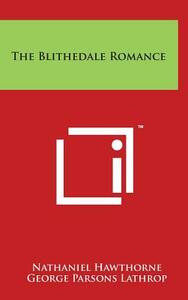Take a photo of a barcode or cover
I feel like this book was the satirical equivalent of a Scary Movie or Meet the Spartans is to Scream or 300. Hawthorne could not decide if he wanted to write a horror book (the story of the Veiled Lady), a romance (the love square between Zenobia-Coverdale-Priscilla-Hollingsworth), or a social commentary (Blithdale Farm/women's rights). So instead he dabbled in them all. In the middle of the book when Coverdale realized he was in the "friend-zone" with Zenobia and Priscilla because they both liked bad boy Hollingsworth, I actually got interested in the story. I thought maybe there would be some awesome revelation, but then I was totally disappointed when I saw the sister surprise coming from a mile away and Westervelt character ended up being a yawn. So, suffice to say, I didn't like it that much.
dark
reflective
slow-paced
Plot or Character Driven:
A mix
Strong character development:
Complicated
Loveable characters:
No
Diverse cast of characters:
No
Flaws of characters a main focus:
Complicated
Real Housewives of Transcendentalism.
Minor: Suicide
dark
emotional
slow-paced
Plot or Character Driven:
Character
Strong character development:
No
Loveable characters:
No
Diverse cast of characters:
No
Flaws of characters a main focus:
Yes
I feel bad giving this only two stars because I really don't think it was a bad book. I just really, really didn't enjoy it that much. Hawthorne is a great writer, and at times hilarious even by today's standards (whether he intends that or not.) I've LOVED The Scarlet Letter since I read it as a kid, and really enjoy his short fiction. He's an interesting character and an interesting writer because of it.
I'd had this on my shelf for a long time as a piece of longer fiction I wanted to try from him, and I'm glad I finally got to it. However, I just don't think it was for me. It wasn't at all what I expected. The writing was great, accessible and intriguing, and the plot was pretty packed for how short the book is. I was so much craving though exactly what Hawthorne was trying to avoid - a stance on the concept of an isolated utopian community. I had a hard time connecting both with these characters and the setting which is not at all what I would think would happen with a Hawthorne novel. The plot was scandalous in a way, yet predictable. I really only had fun laughing at Coverdale because he's such a ridiculous main character.
This isn't bad, it just wasn't for me. I really wanted something different out of this, and because of that, I think this book sort of failed at what it gave me instead. Maybe if I'd picked it up as soon as I'd heard of it and not had as much time to build up for it, my feelings would be different.
I'd had this on my shelf for a long time as a piece of longer fiction I wanted to try from him, and I'm glad I finally got to it. However, I just don't think it was for me. It wasn't at all what I expected. The writing was great, accessible and intriguing, and the plot was pretty packed for how short the book is. I was so much craving though exactly what Hawthorne was trying to avoid - a stance on the concept of an isolated utopian community. I had a hard time connecting both with these characters and the setting which is not at all what I would think would happen with a Hawthorne novel. The plot was scandalous in a way, yet predictable. I really only had fun laughing at Coverdale because he's such a ridiculous main character.
This isn't bad, it just wasn't for me. I really wanted something different out of this, and because of that, I think this book sort of failed at what it gave me instead. Maybe if I'd picked it up as soon as I'd heard of it and not had as much time to build up for it, my feelings would be different.
ok so i didn't really finish this book all the way, but i kinda did. I had to read it for school. I might have finished it if my professor hadn't ruined the ending about every single time we came to class. It was interesting, but then it got boring, especially since I didnt have to keep reading to find out what happened. I already knew.
Incredible writing, good breaks of depth and of humor. Strikingly human in its mystery.
In The Blithedale Romance, rootless dilettante Miles Coverdale joins an experiment to set up a farming-based collective community in Massachusetts. But the ideal of creating a Utopia is quickly undermined by personal passions and the dynamics of the group, exposing their misplaced and conflicting objectives. Coverdale ends up becoming obsessed with finding out the secret stories of two members of the community: an elegant woman named Zenobia and a younger woman called Priscilla who circle around the de facto leader Hollingsworth. Told by the detached bachelor Coverdale himself, the narrative is full of ambiguities and unreliable speculation, reflected by recurring references to partially seen and veiled realities. It depicts an America caught between its lost and barely known pre-colonial past and the restless urban development of the 19th century.
Two reasons I liked this book:
(1) Nathaniel Hawthorne creates suspense. He does a great job of stirring up a windstorm of "I want to know" mised with sharp bits of "I'm about to find out," and then follows through with only a little reveal... or when it is a bigger reveal (never *the* big reveal... we only get part of the answer), it's written so that we now have new questions needing answers.
(2) Nathaniel Hawthorne sets his story in a commune-type setting -- a big experiment in changing how people live -- that is based on a real place and event I didn't know existed. Seeing what idealists of all those years ago imagined... that adds a layer to what I know of that time in history.
Sure, I could go on to talk about the characters and his use of natural details and pseudo-magical sensations throughout the story, but the suspense and the history are what really drew me into this story.
(1) Nathaniel Hawthorne creates suspense. He does a great job of stirring up a windstorm of "I want to know" mised with sharp bits of "I'm about to find out," and then follows through with only a little reveal... or when it is a bigger reveal (never *the* big reveal... we only get part of the answer), it's written so that we now have new questions needing answers.
(2) Nathaniel Hawthorne sets his story in a commune-type setting -- a big experiment in changing how people live -- that is based on a real place and event I didn't know existed. Seeing what idealists of all those years ago imagined... that adds a layer to what I know of that time in history.
Sure, I could go on to talk about the characters and his use of natural details and pseudo-magical sensations throughout the story, but the suspense and the history are what really drew me into this story.
engaging characters; strong development of the tragedy. story of "brotherhood" and relationships between flawed people.
I understand the purpose of leaving Westervelt's role in the story mostly unknown, but I still hate the loose end. Really liked that Hawthorne wrote it in such a way that the reader had realizations about the narrator before the narrator had them about himself.


